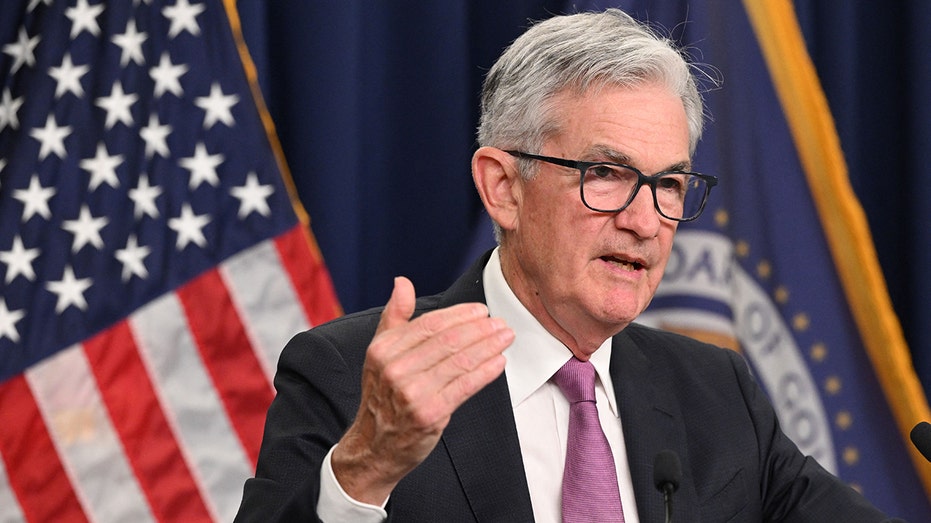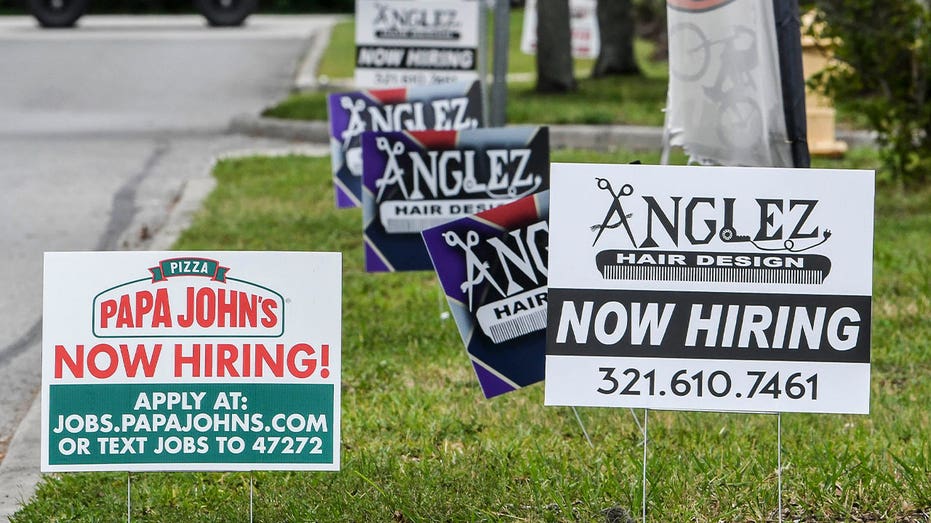GDP may decline again in second quarter, signaling possible recession
Economic decline in second quarter could meet technical criteria for a recession
Why the market is celebrating the Fed's decision
Quill Intelligence CEO Danielle DiMartino Booth and economist Nomi Prins break down the Federal Reserve's handling of record-high inflation on 'Making Money.'
The U.S. economy likely slowed to a crawl or even shrank in the second quarter, potentially signaling that a recession could be on the horizon as the Federal Reserve raises interest rates at the fastest pace in decades to cool inflation.
The Bureau of Economic Analysis will publish its preliminary estimate of second-quarter gross domestic product, the broadest measure of goods and services produced in the country, at 8:30 a.m. ET Thursday. The data is expected to show that GDP rose just 0.5% on an annualized basis, a sharp drop from the 5.7% recorded in 2021.
Some estimates are even bleaker. GDP Now, an up-to-date tracker monitored by the Federal Reserve Bank of Atlanta, is estimating that growth actually declined 1.2% in the period from April to June.
FED PREPARES ANOTHER MEGA-SIZED RATE HIKE, RISKING DEEPER DOWNTURN
Economic output already fell over the first three months of the year, with GDP tumbling 1.6%, the worst performance since the spring of 2020, when the economy was still deep in the throes of the COVID-induced recession.
Recessions are technically defined by two consecutive quarters of negative economic growth and are characterized by high unemployment, low or negative GDP growth, falling income and slowing retail sales, according to the National Bureau of Economic Research (NBER), which tracks downturns.
If the economy declines in the second quarter, it could meet the technical criteria for a recession, which requires a "significant decline in economic activity that is spread across the economy and that lasts more than a few months." Still, the NBER — the semi-official arbiter — may not confirm it immediately as it typically waits up to a year to call it.

Federal Reserve Board Chairman Jerome Powell speaks during a news conference in Washington, D.C., on July 27, 2022. (Mandel Ngan/AFP via Getty Images / Getty Images)
The NBER has also stressed that it relies on more data than GDP in determining whether there's a recession, such as unemployment and consumer spending, which remained strong in the first six months of the year. It also takes into consideration the depth of any decline in economic activity.
"Thus, real GDP could decline by relatively small amounts in two consecutive quarters without warranting the determination that a peak had occurred," the nonprofit said on its website.
The committee does not meet regularly, only when members decide that it is warranted.
HOW HOUSING IS FUELING SEARING-HOT INFLATION
There are conflicting signs about the economy's health: the number of Americans filing for unemployment benefits has gradually increased, companies have announced layoffs or hiring freezes, and the housing market is softening. At the same time, unemployment remains near a historic low, and consumers are still spending heavily, despite scorching-hot inflation.
Economists widely agree the risks of a recession climbed considerably this year and that avoiding a downturn in the near future will be increasingly difficult as the Federal Reserve tries to bring inflation under control by cooling consumer demand. Central bank policymakers raised the benchmark interest rate by 75 basis points in June and July for the first time since 1994. They signaled that another increase of that magnitude is possible in September.
Fed Chairman Jerome Powell told reporters that he does not believe the U.S. economy is in a recession, despite growing fears that the country's central bank could trigger a downturn with its war on inflation.
"I do not think the U.S. is currently in a recession, and the reason is there are too many areas of the economy that are performing too well," Powell said. "This is a very strong labor market. … It doesn’t make sense that the economy would be in a recession with this kind of thing happening."

Papa John's Pizza and Anglez Hair Design display multiple signs around the businesses looking for employees. (Craig Bailey/FLORIDA TODAY via USA TODAY NETWORK / Reuters Photos)
He also issued a word of caution on the unseen GDP data ahead of its release.
"Generally, the GDP numbers do have a tendency to be revised pretty significantly," he said. "You tend to take first GDP reports with a grain of salt."
Hiking interest rates tend to create higher consumer and business loan rates, which slows the economy by forcing employers to cut back on spending. Mortgage rates are already approaching 6%, the highest since 2008, while some credit card issuers have ratcheted up their rates to 20%.
The White House is now trying to get ahead of what will likely be a dismal GDP report, downplaying the meaning of a negative figure and arguing the economy is nowhere near a recession.
CLICK HERE TO READ MORE ON FOX BUSINESS
"We’re not going to be in a recession," President Biden said on Monday.





















